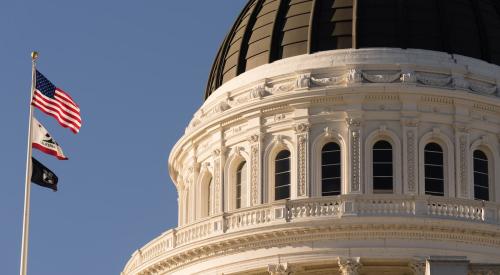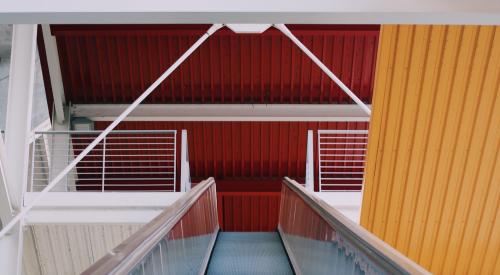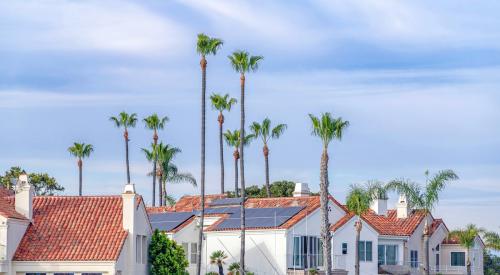After months of evaluation, California’s Senate Bill 32 wasn’t considered during the final hours of the state’s legislative session on Sept. 10. However, SB 32 will become a two-year bill to be revisited in early 2016, according to a statement by California state senator Fran Pavley.
The bill, proposed by Pavley, intends to reduce pollution by cutting carbon emissions by 40 percent of 1990 levels by 2030 and by 80 percent of those levels by 2050.
“Building on the success of our existing policies will create even more jobs and save families and businesses money on their energy and fuel bills, while also reducing pollution to ensure a cleaner and healthier environment for all,” Pavley said in a statement.
The bill has 27 co-authors and is backed by environmentalists, businesses, and local governments—but not by home builders. The California Building Industry Association (CBIA) said in a press release that, because houses will need to be constructed to meet minimum standards of Net Zero efficiency, it anticipates SB 32 will drive up the price of homes and will lose California billions of dollars in gross state product. According to CBIA president and CEO Dave Cogdill, the bill will add $58,000 to the price of every new house.
The CBIA commissioned Capitol Matrix Consulting to analyze the impact of SB 32 on California’s residential market. The report concluded that SB 32 will raise the cost of a median-price home by more than 12 percent; price approximately 683,000 households out of the real estate market; cause an annual 10,450-unit reduction in single-family housing construction; lose $9.7 billion annually in gross state product; and shed 95,000 jobs in the California economy.
“The market will not bear this premature and extreme policy, and frankly, Californians just climbing out of a catastrophic housing slump shouldn’t be asked to shoulder the extra cost,” Cogdill said in a statement. PB













